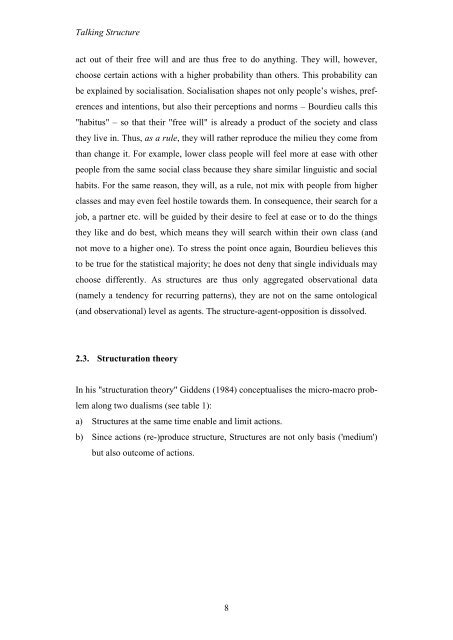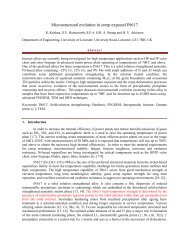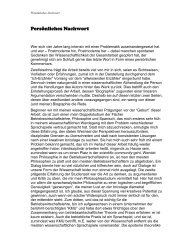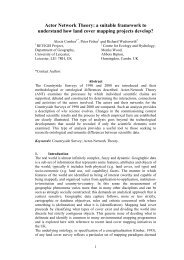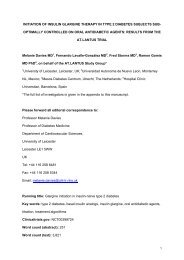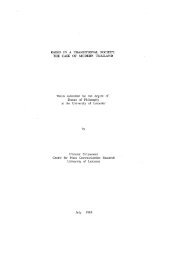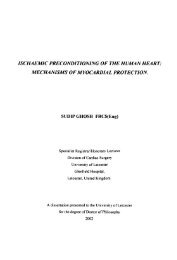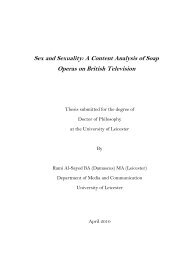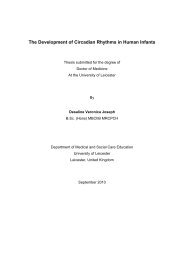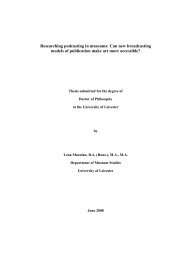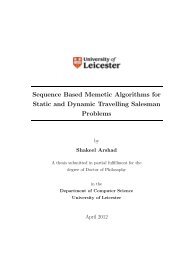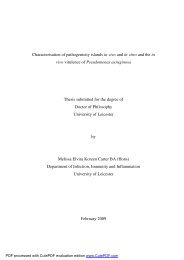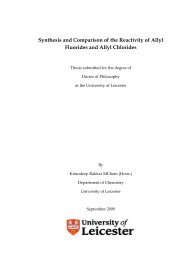In organisation theory, bridging the gap between „micro“ and „macro ...
In organisation theory, bridging the gap between „micro“ and „macro ...
In organisation theory, bridging the gap between „micro“ and „macro ...
Create successful ePaper yourself
Turn your PDF publications into a flip-book with our unique Google optimized e-Paper software.
Talking Structure<br />
act out of <strong>the</strong>ir free will <strong>and</strong> are thus free to do anything. They will, however,<br />
choose certain actions with a higher probability than o<strong>the</strong>rs. This probability can<br />
be explained by socialisation. Socialisation shapes not only people’s wishes, pref-<br />
erences <strong>and</strong> intentions, but also <strong>the</strong>ir perceptions <strong>and</strong> norms – Bourdieu calls this<br />
"habitus" – so that <strong>the</strong>ir "free will" is already a product of <strong>the</strong> society <strong>and</strong> class<br />
<strong>the</strong>y live in. Thus, as a rule, <strong>the</strong>y will ra<strong>the</strong>r reproduce <strong>the</strong> milieu <strong>the</strong>y come from<br />
than change it. For example, lower class people will feel more at ease with o<strong>the</strong>r<br />
people from <strong>the</strong> same social class because <strong>the</strong>y share similar linguistic <strong>and</strong> social<br />
habits. For <strong>the</strong> same reason, <strong>the</strong>y will, as a rule, not mix with people from higher<br />
classes <strong>and</strong> may even feel hostile towards <strong>the</strong>m. <strong>In</strong> consequence, <strong>the</strong>ir search for a<br />
job, a partner etc. will be guided by <strong>the</strong>ir desire to feel at ease or to do <strong>the</strong> things<br />
<strong>the</strong>y like <strong>and</strong> do best, which means <strong>the</strong>y will search within <strong>the</strong>ir own class (<strong>and</strong><br />
not move to a higher one). To stress <strong>the</strong> point once again, Bourdieu believes this<br />
to be true for <strong>the</strong> statistical majority; he does not deny that single individuals may<br />
choose differently. As structures are thus only aggregated observational data<br />
(namely a tendency for recurring patterns), <strong>the</strong>y are not on <strong>the</strong> same ontological<br />
(<strong>and</strong> observational) level as agents. The structure-agent-opposition is dissolved.<br />
2.3. Structuration <strong><strong>the</strong>ory</strong><br />
<strong>In</strong> his "structuration <strong><strong>the</strong>ory</strong>" Giddens (1984) conceptualises <strong>the</strong> micro-macro prob-<br />
lem along two dualisms (see table 1):<br />
a) Structures at <strong>the</strong> same time enable <strong>and</strong> limit actions.<br />
b) Since actions (re-)produce structure, Structures are not only basis ('medium')<br />
but also outcome of actions.<br />
8


